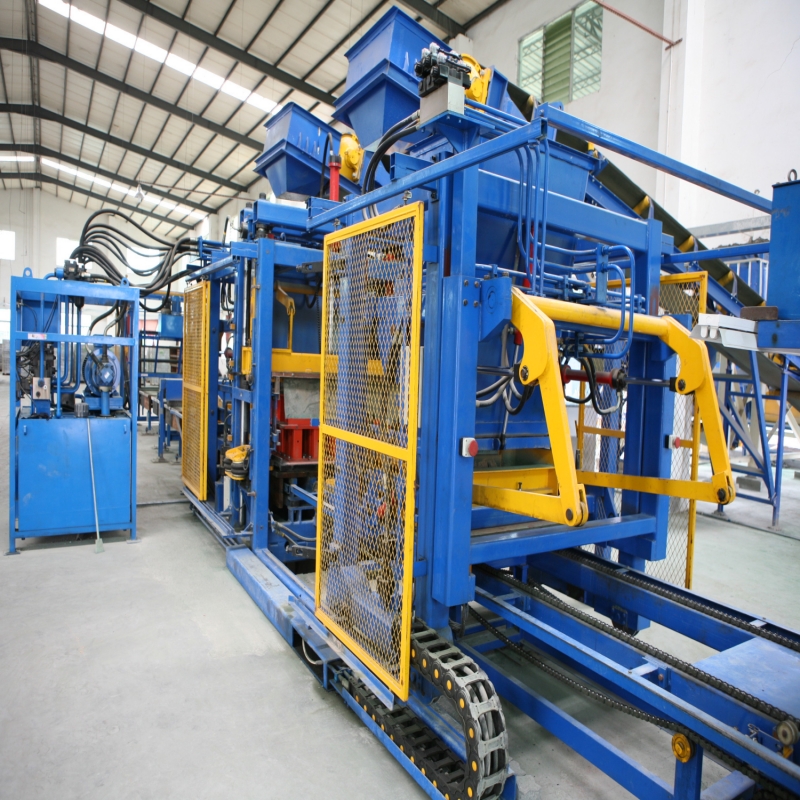The costs associated with purchasing and operating an interlocking bricks making machine can vary depending on several factors, including the size and capacity of the machine, the quality of its components, and the location of the supplier. Here are some typical costs to consider:
- Purchase cost: The cost of an interlocking bricks making machine can range from several thousand to tens of thousands of dollars, depending on the size and capacity of the machine. The quality of the machine and its components can also affect the purchase cost.
- Operating costs: The operating costs of an interlocking bricks making machine can include the cost of raw materials, electricity or fuel, and maintenance and repair costs. The specific costs will depend on several factors, including the size and capacity of the machine and the local cost of materials and energy.
- Labor costs: While interlocking bricks making machines can reduce the amount of labor required compared to traditional brick-making methods, some labor costs may still be associated with operating the machine, such as loading and unloading raw materials and finished products, and performing routine maintenance tasks.
- Training and support: Depending on the complexity of the machine and the experience of the operator, training and support costs may be required to ensure that the machine is operated safely and efficiently.
- Transportation and logistics: The cost of transporting the machine to the site of operation, as well as any associated permits or fees, should also be considered.
Overall, the costs associated with purchasing and operating an interlocking bricks making machine can be significant, but may be offset by the efficiency and cost-effectiveness of the machine compared to traditional brick-making methods. Careful consideration of the specific needs and requirements of the project, as well as the quality and reputation of the supplier, can help to ensure that the investment in an interlocking bricks making machine is cost-effective in the long run.
What is interlocking bricks making machine?
An interlocking bricks making machine is a specialized equipment used to manufacture interlocking bricks. Interlocking bricks are designed to fit together like a puzzle, without the need for mortar or other binding materials. Interlocking bricks are commonly used in construction for walls, walkways, and other structures.
The interlocking bricks making machine uses hydraulic pressure to compress and mold the raw materials into interlocking bricks. interlocking bricks making machine The machine typically consists of a mixing chamber, a compression chamber, and a hydraulic system. The raw materials used in the production of interlocking bricks may include soil, sand, cement, and water.
Here are some key features of interlocking bricks making machines:
- Versatility: Interlocking bricks making machines can be used to manufacture a variety of different types and sizes of interlocking bricks, depending on the needs of the project.
- Efficiency: Interlocking bricks making machines are designed to be efficient, with high production rates and minimal waste.
- Easy to use: Interlocking bricks making machines are user-friendly and easy to operate, with simple controls and straightforward instructions.
- Low maintenance: Interlocking bricks making machines require minimal maintenance over their lifespan, which helps to keep operating costs low.
- Cost-effective: Interlocking bricks making machines are a cost-effective option for manufacturing interlocking bricks, as they reduce the need for labor and other resources.
- Eco-friendly: Interlocking bricks making machines are an eco-friendly option, as they use locally sourced raw materials and do not require the use of mortar or other binding materials.
When choosing an interlocking bricks making machine, it is important to consider factors such as production capacity, size, and cost, as well as the quality of the finished product. It is also important to choose a machine from a reputable supplier, who can provide training and support for the operation and maintenance of the machine.
